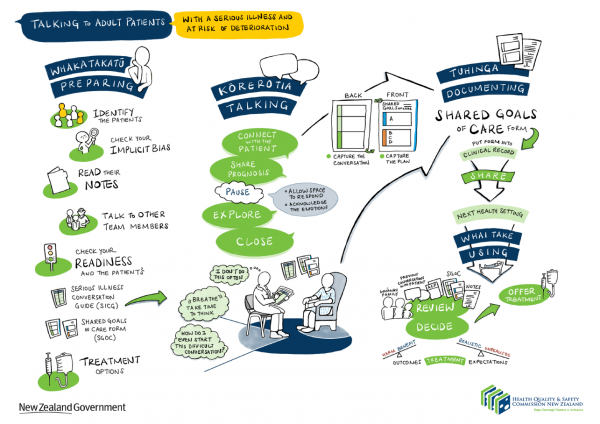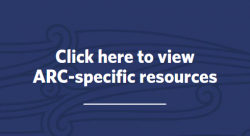The aim of this web content is to support you with a toolkit to help you navigate care planning and decision-making in an empathetic and person-centric way in the current changing environment.
The resources on these pages are designed to help you have conversations about what matters most to your patients and their whānau. They are easily accessed, clear and consistent, and are based on sound principles, evidence and experience.

Click to view our infographics on talking to adult patients with a serious illness and at risk of deterioration.
The resources are arranged by the key activity they support – from preparing to talk to your patients/residents and their whānau, talking to them, documenting what you learn from the conversation and any decisions to using this information to inform care.
Use the resources when having conversations with:
 all patients/residents at risk of serious illness if they contract COVID and what that might mean for them
all patients/residents at risk of serious illness if they contract COVID and what that might mean for them- patients/residents who have COVID-19 and what that might mean for them
- whānau about a COVID-19 diagnosis and what that might mean for their whānau member.
Regardless of setting, here are some things to keep in mind.
- Keep the person and their whānau in sharp focus. Be person-centric not pandemic-focused.
- Document what you already know about the patient's/resident’s values, concerns, goals and preferences from advance care plans, medical records and previous conversations.
- Continue to include the patient/resident and their whānau as much as possible in all planning and decision-making. We acknowledge this may not be easy.
- Prepare for these conversations.
- Acknowledge how difficult the situation is and how we wish it were different.
- Talk to patients/residents and their whānau about what they hope for in the face of this situation.
- Be honest and kind.
- Use what people hope for to support effective treatment decision-making.
- These are extraordinary times and supporting these conversations can take a toll. Take care of yourself and seek collegial support.
